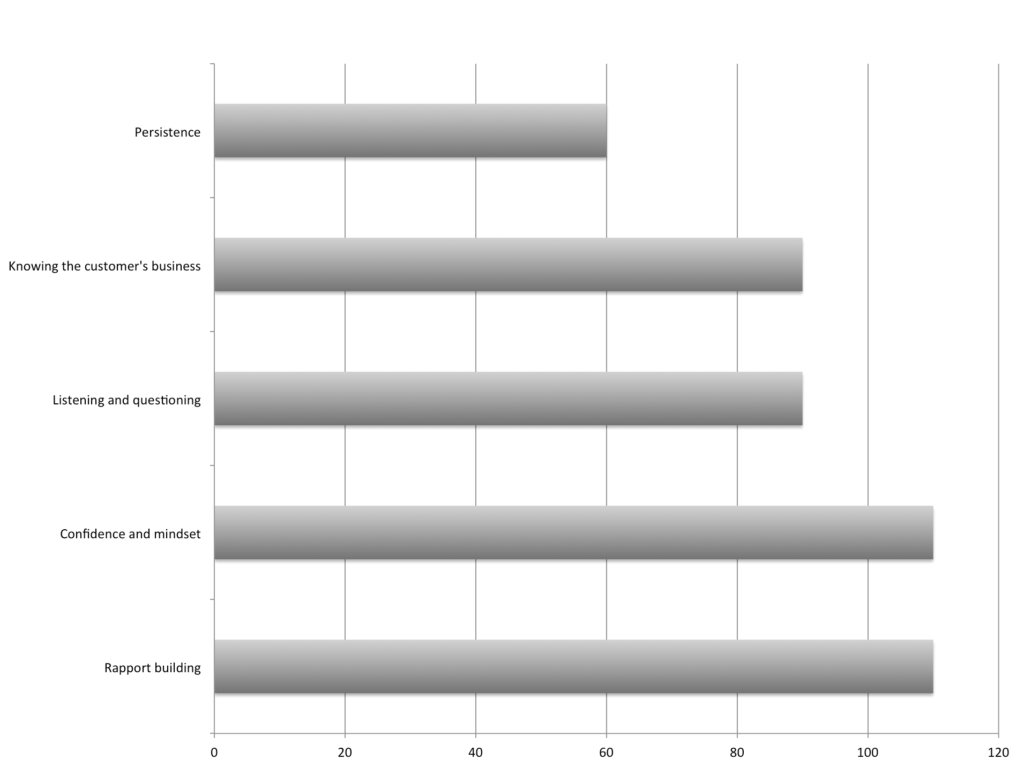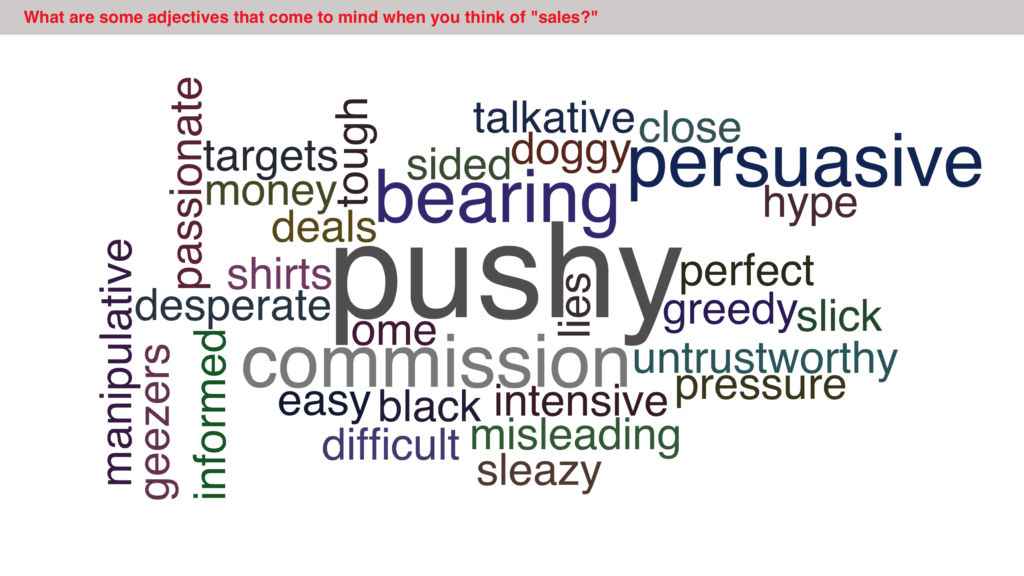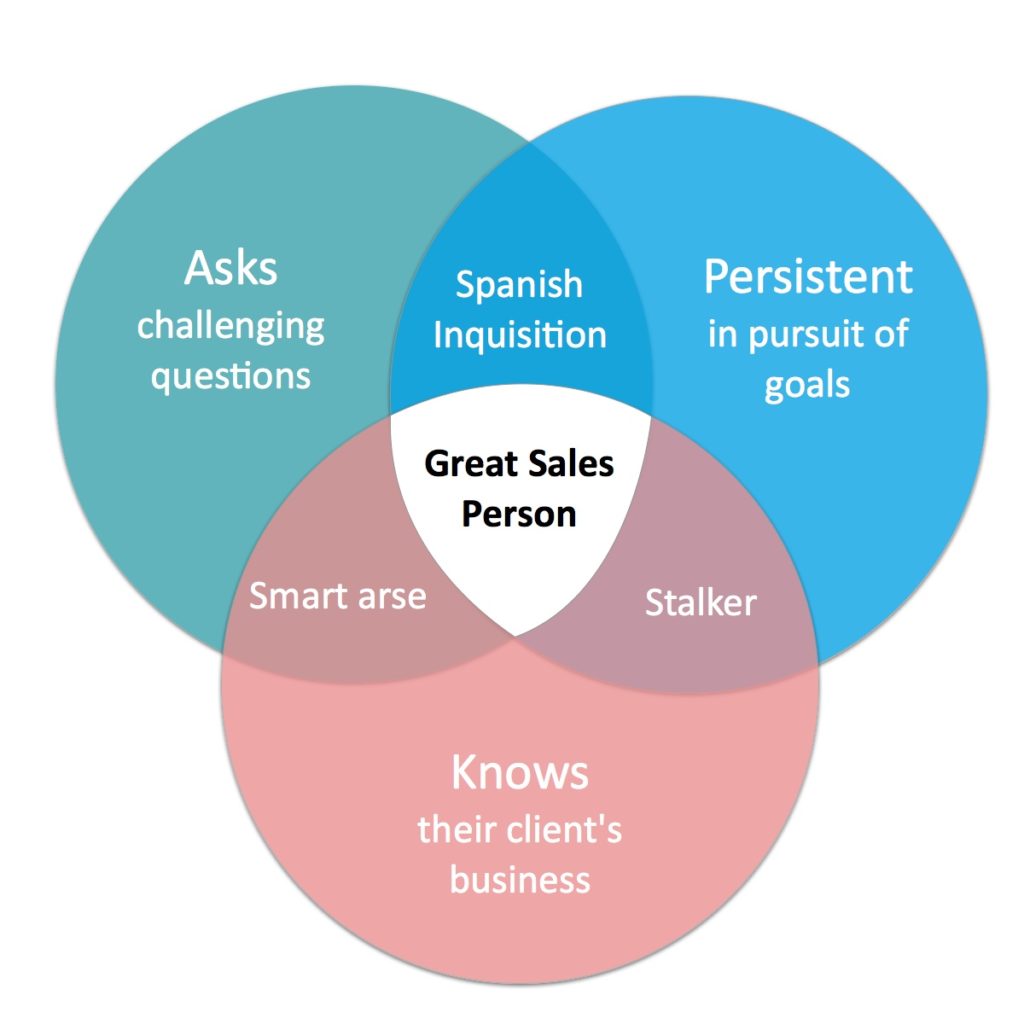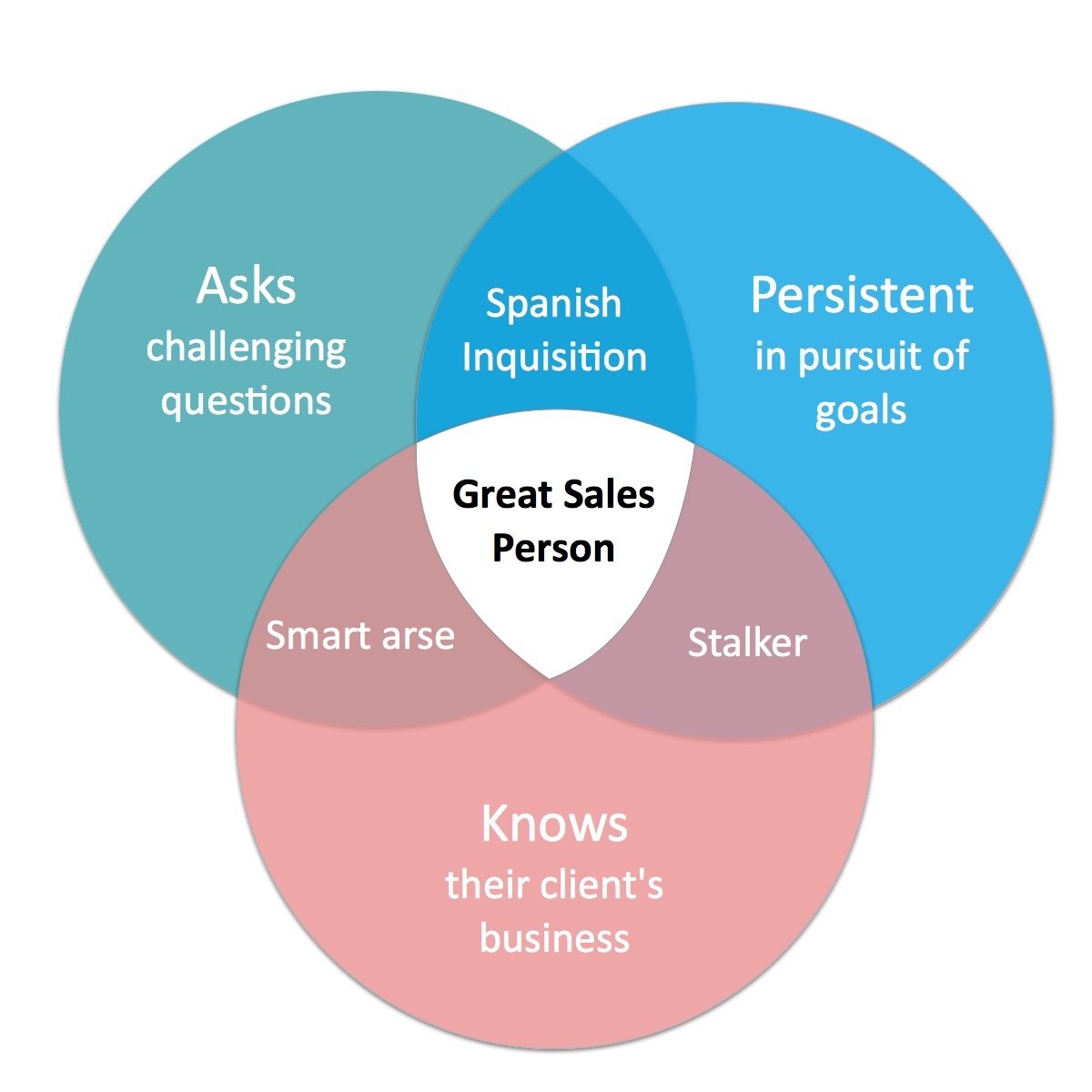In Salestrong sales training workshops, I always ask the delegates to identify and share their sales strengths and weaknesses. We have asked thousands of salespeople this question and consistently they give these types of answers:

This poll was taken from salespeople operating in the business to business environment and the deal values range between £1k and £30k. There can be no doubt that the skills and qualities are essential to be an effective salesperson and would be included in most lists of salespeople’s strengths and weaknesses.
How sales people are perceived
It’s very interesting to see that rapport building, as a strength, comes ahead of knowing the customer’s business. We interpreted this to mean that rapport building is not necessarily more important, but rather that you need to build rapport first in order to get to know the customer’s business. When we examine these qualities in sales training workshops, the discussions between the delegates often leads to the conclusion that the strengths can sometimes be weaknesses. For example, persistence is essential to being a successful salesperson, however over persistence can be annoying and put some people off. In fact, when we asked the same salespeople how their customers perceive them, this is what the same salespeople said:

Pushy was the primary adjective used to describe the sales people. This ties in perfectly with the research that Dan pink performed on how people perceive salespeople. So with the strengths of sales people potentially becoming weaknesses, the conversation quickly turns to how do we balance these qualities to prevent this?
Sales strengths and weaknesses
For this purpose when I deliver my Bitesize training sessions, I have developed the following tool to promote discussion around strengths and weaknesses:

In order to make the task more simple, we prioritise just three of the key sales skills:
- Asking challenging questions
- Persistent to the pursuit of goals
- Knowing the clients business
With these three sales strengths we should have a great salesperson. But if we examine the skills in isolation, or in an unbalanced or ineffective way, we get a potentially unhealthy effect from these skills. For example, someone who asks challenging questions but is too persistent could come across as, ‘The Spanish Inquisition’:

This is probably why the salespeople who were interviewed put ‘rapport building’ ahead of ‘knowing the customer’s business’. You need the first in order to achieve the second. When coaching sales people, I often see a share of voice as being bias towards the sales person which I discuss further here, but once this share of voice weakness has been redressed, the next typical issue is that salespeople struggle to give their questions the appropriate flow. In this type of situation the linkages between the questions are not apparent, or they do not flow easily. The questions need to flow just as a normal conversation flows. There needs to be connections between one question and the next. When these connections are missing, the interview can feel like the Spanish Inquisition. This is often due to sales people, perhaps for the first time, balancing questioning and listening at the same time. Something that is infinitely easier to write than it is to actually do!
Someone who knows their customer’s business extremely well and is very persistent, at the extreme end, could potentially come across as a bit of a stalker; particularly in the case of new customers if you have performed significant research on them and they are not aware of you. Instead of opening up the customer, this could close them down.
Somebody who asks challenging questions and knows the clients business really well, again at the extreme end, could potentially put the customer into a defensive mode. In such a situation the salesperson could come across as if they know too much. And let’s face it, nobody likes a smart arse.
Strengths can be Weaknesses
What we find in Salestrong Bitesize sales training programmes, is that strengths in isolation can often become weaknesses. It is the balancing of the strengths, and refining them to be used at higher levels, that separates a weak sales performance from a strong sales performance. Once sales people know the basics, it is up to them to develop their skills more deeply. It is also up to the sales managers to coach them in refining theses skills and help them to use them at a higher level. In this combined way, sale strengths can remain strengths and not become weaknesses.
For more information on sales strengths and weaknesses, don’t hesitate to contact me at steve@salestrong.co.uk or follow us on twitter for daily sales tips and videos.

